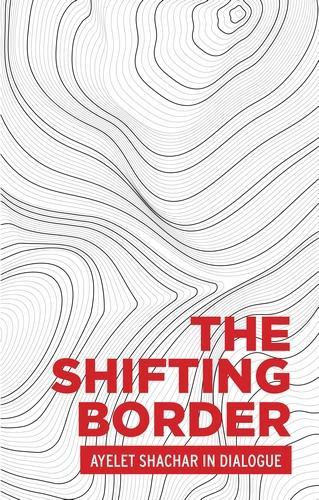
The Shifting Border: Legal Cartographies of Migration and Mobility: Ayelet Shachar in Dialogue
(Hardback)
Publishing Details
The Shifting Border: Legal Cartographies of Migration and Mobility: Ayelet Shachar in Dialogue
By (Author) Ayelet Shachar
Manchester University Press
Manchester University Press
28th February 2020
United Kingdom
Classifications
Tertiary Education
320.12
Physical Properties
Hardback
328
Width 138mm, Height 216mm
Description
The border is one of the most urgent issues of our times. We tend to think of a border as a static line, but recent bordering techniques have broken away from the map, as governments have developed legal tools to limit the rights of migrants before and after they enter a country's territory. The consequent detachment of state power from any fixed geographical marker has created a new paradigm: the shifting border, an adjustable legal construct untethered in space. This transformation upsets our assumptions about waning sovereignty, while also revealing the limits of the populist push toward border-fortification. At the same time, it presents a tremendous opportunity to rethink states' responsibilities to migrants. This book proposes a new, functional approach to human mobility and access to membership in a world where borders, like people, have the capacity to move. -- .
Reviews
Shortlisted for the 2022 C.B. Macpherson Prize
'Starting where The Birthright Lottery ends, in this new path-breaking work, Ayelet Shachar makes visible recently developed border regimes that defy settled notions of territory and human rights, constituting a new level of control and global inequality. Both her empirical and her normative analyses are innovative and rich, an exemplar of profound scholarship. In dialogue with a superb group of experts, the complex dimensions of shifting borders are further elucidated. A great achievement.'
Rainer Forst, Professor of Political Theory and Philosophy, Goethe University Frankfurt
'The Shifting Border by Ayelet Shachar is a remarkable book. Essential for understanding government responses to people on the move, Shachars vivid description, analytical precision and reasoned persuasion combine to challenge conventional wisdoms about borders and how they work. The result: exceptional insights into how migration control can be more just. The Shifting Border offers an indispensable roadmap to immigration and refugee debates all around the world.'
Hiroshi Motomura, Susan Westerberg Prager Professor of Law, UCLA School of Law
'[...] The shifting border is a valuable contribution to the scholarship on migration and mobility. Shachars innovative framework nicely exemplifies the shift from idealised ethical debates to institutional and political analysis, without losing sight of normative questions. The compelling and clear language, and the attractive format of lead essay and responses, also makes this a useful source for non-specialists and students. Highly recommended.'
Lior Erez, University of Haifa, LSE Review of Books (June 2020)
'Reading this essay by Shachar (Max Planck Institute for the Study of Religious and Ethnic Diversity and Univ. of Toronto) with six contributed responses is like getting the dream dinner invitation to hear cutting-edge thought on borders. Shachar presents her thesis that physical/administrative/political borders have become pass: borders are not physical places but legal spaces that states can manipulate to yield desired outcomes, allowing states, for example, to capture undesirables and apply parallel legal rights regimes within those spaces, while also expanding outward beyond national borders, allowing extraterritorial inspection and exclusion from spaces within other countries territory. This reimagination of the Westphalian system proposes that while physical borders remain in place, their meaning changescontradicting conventional expectations of both reified national borders and global borderless territories where rights are supposedly protected through international agreements and treaties. Shachar focuses on how states exclude. Six amazing authors respond to her thesis, engaging legal geography, law, political theory, political science, sociology, and historical accounts to critique and offer alternative or complementary views. These texts Include astute discussions of technology and how it contributes to altering border spaces, as well as how we exclude migrants even after their successful border crossing. Shachar's response to critics follows, and the book ends with a fantastic bibliography.'
R. A. Harper, York College, CHOICE
'Having read and enjoyed this inspiring book, I strongly recommend it to scholars of international law (especially migration and refugee law) and migration studies. However, its broad scope and accessible language also make it appealing to a non-specialist audience interested in the rationales underlying contemporary migration policies and how they can be challenged.'
Jonas Pschmann, Border Criminologies
Author Bio
Ayelet Shachar is Director of the Max Planck Institute for the Study of Religious and Ethnic Diversity and Professor of Law and Political Science at the University of Toronto
